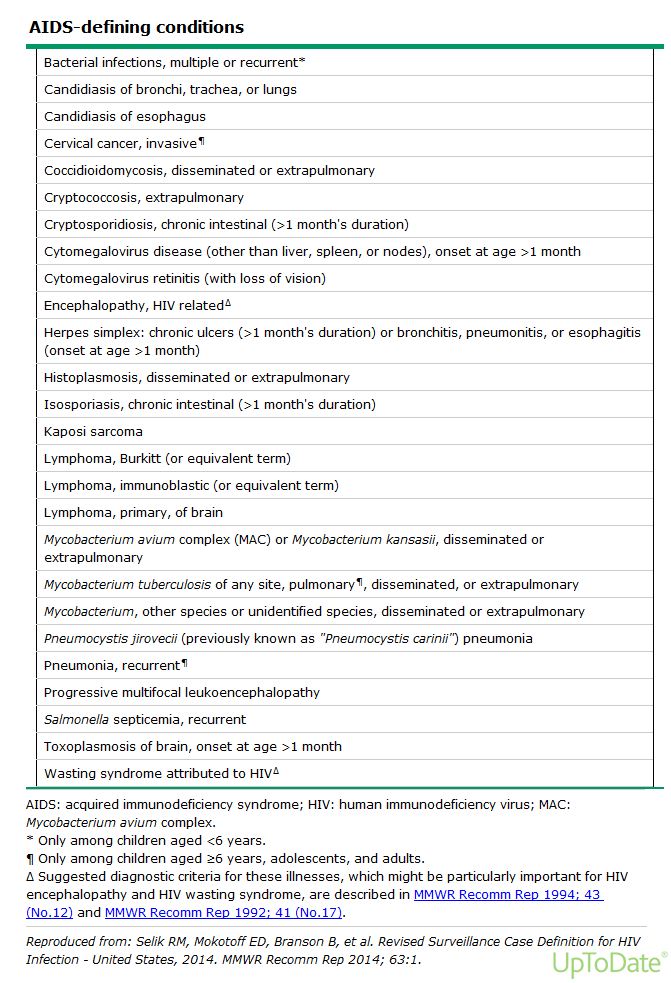Olodae Saliu
January 4th, 2021
Mentor: Ilonka Molano MD, Department of Infectious Disease
AIDS Defining Illness Teaching Points
AIDS is defined as a patient with HIV infection who has
– CD4 cell count < 200 OR
– CD4 cell count of any level AND an AIDS defining illness
AIDS defining illnesses are conditions that occur primarily in patients severely depressed CD4 count or ones that occur more frequently or more severely than in other populations.
Progressive multifocal leukoencephalopathy is a demyelinating CNS disease caused by reactivation of the JC virus and causes non-contrast enhancing asymmetric lesions.
Toxoplasmosis and CNS lymphoma are both on the differential for ring enhancing brain lesions in patients with AIDS.
Cryptococcus neoformans meningoencephalitis has an indolent onset and can present with altered mental status and cranial neuropathies. It is managed with IV amphotericin B and flucytosine/fluconazole, as well as management of increased intracranial pressure.
Prophylaxis with TMP-SMX (or an alternative) should be started for toxoplasmosis when CD4 count < 100 and Pneumocystis jirovecii pneumonia for CD4 count < 200.
Have a high index of suspicion for PJP in patients who present with unexplained fever, dry cough and hypoxia (CXR may be normal). Steroids should be administered for PaO2 < 70 mmHg or an A-a gradient >35 mmHg.
Tuberculosis is a leading cause of death in patients with HIV. In patients with symptoms suspicious for TB, it is diagnosed with chest imaging and sputum samples. Interferon gamma release assay is not useful as a screening tool in patients with severely depressed CD4 count.
Kaposi sarcoma comes in various colors depending on a patient’s skin tone. It is typically managed with ART, though patients with extensive or visceral disease may be treated with systemic chemotherapy.
Stool studies (ova and parasite) are a key part of the evaluation of a patient with HIV presenting with chronic diarrhea. Consider medication side effects, colonoscopy and/or imaging if stool testing is unrevealing.
CMV retinitis is the most common cause of serious ocular complications in patients with AIDS and may lead to complete visual loss through retinal detachment.
Immune reconstitution inflammatory syndrome is an improvement of immune function that leads to worsening or unmasking of a prior infection in patient with immunosuppression after starting ART. It is managed by continuing ART and treating the underlying opportunistic infection.

